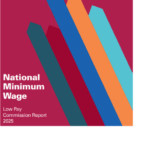
Too many councils passing on insufficient funding rates to childcare providers
Early education and care providers are not seeing the full benefit of Government funding rate increases for two-year-old places in 88% of council areas, according to an investigation by National Day Nurseries Association (NDNA).
In an analysis of 119 local authority base rates for the two, three and four-year-old funded places, NDNA found that in 66 local authorities the increase in funding given to providers for three and four-year-old places was lower than the uplift provided to the council by the Department for Education (DfE).
It also found that in 38 councils the base rate funding for two-year-old places to providers is now actually lower from April 2024 than it had been last September. At the same time, 26 councils had their funding rates reduced centrally by the DfE.
Highlighting the varying rules which councils apply to early years funding for three and four-year-old places, the research found that the average base rate paid to all providers amounted to 90.3% of the funding councils get from DfE. This ranged from 76.7% in Hammersmith and Fulham to over 98% in Lancashire and Warrington.
Councils can currently retain up to 5% of the hourly rates for children in their area to fund the administration of the policy and give extra support to providers. They are also able to create additional budgets for supplements which give top-up payments for children in areas of deprivation, children with SEND and elements such as provider quality. From April, the two-year-old funding is subject to the same retention allowance and top-slicing powers.
The analysis of two-year-old base rates found that they represent an average of 93.3% of funding received from DfE. These ranged from 78.5% in Wandsworth, where providers reported a base rate of £8.77 per hour per child out of the £11.17 per hour the DfE provides to the council, to 99.3% in Nottinghamshire.
Purnima Tanuku OBE, Chief Executive of National Day Nurseries Association (NDNA) said: “A lot has been made about the increased investment in early education and care due to the Government’s expansion plans. While extra money is good news for parents and a welcome investment in children’s early learning, these figures show that it is not all reaching the front line.
“Councils and providers face a very complex and outdated funding system that doesn’t mean money to fund early education and care reaches the providers who are working with our youngest children.
“The fact that the base rate paid to providers for two-year-olds has dropped in nearly 40 local authority areas is making it much harder for nurseries to be able to deliver the places that parents need. Our other research has shown that nursery staffing costs alone went up by 14.4% in April, so these nurseries are being asked to do more with less.
Nurseries and other childcare providers are expected to deliver this expansion to two-year-olds when their funding has actually dropped in many places.
“For now, nurseries have far more three and four-year-old children on funded places but funding rates they are receiving for those places is even worse. The average rate providers receive is now over 50 pence per hour below the rate that the Government is funding councils.
“We need to see councils properly funded for the work they do, not having to top-slice from budgets set aside for children’s care and education. We also know that any money left over in early years budgets is often used to off-set overspends in high needs. Meanwhile nurseries cannot access the funding they need to support children with SEND in their setting. Additional supplements here and there do not meet the complex needs that providers are seeing in our youngest children.
“The funding model needs to be fixed and quickly. From September, nurseries will also be expected to deliver funded places for those aged nine months upwards. They should be fully supported to be able to do this and to thrive. We need a sector that is growing and sustainable, not one that is shrinking.”
Overall, more than a third of councils are passing less than 93% of their government funding for two-year-old places to childcare providers and that rises to almost three quarters (74%) for three and four-year-old childcare places. Survey data from providers suggests that 83% of settings do not believe the current rates for three and four-year-old places cover the cost of delivery.
The average base rate that nurseries across England now receive for two-year-old places is 93.3% of the allocated funding. This means that although councils receive on average £8.44 per child per hour, nurseries receive on average only £7.85 for the new places.
The situation has worsened for three and four-year-old places. NDNA discovered that out of 119 council areas, 88 were receiving less than 93% of the allocated funding, with 27 not even getting 88%. Three London councils are passing on less than 80% through their base rates: Ealing 78.2%; Hammersmith and Fulham 76.7% and Camden 79.9%.
Looking at the two-year-old funded places, of 119 councils analysed, NDNA found that 78 councils are passing through more than 93%. However, 28 are passing through between 88% and 93% of their allotted funding and 13 were less than 88%.
NDNA has also discovered that 30 local authorities out of 119 analysed are giving providers different rates for eligible two-year-olds (from disadvantaged backgrounds) and for two-year-olds of working parent families.
The analysis of base rates found the following:
Two-year-old funding for 2024-25:
- 65.5% (78 LAs) are giving providers a base rate of 93% or above
- 24% (28 LAs) are giving providers a base rate of 88% – 92% which could mean many are missing out if they don’t receive any supplements
- 11% (13 LAs) aren’t even passing through 88%
- 34% passing less than 93%
- The average rate providers receive for eligible twos is £7.94 but £7.85 for working parent twos and yet the average rate local authorities receive is £8.44
- The average base rate is 93% of the rate the local authority receives.
- Since rules changed the base rates have dropped from 98% of the overall funding given to local authorities down to 93% now
- The base rate is now lower in 38 council areas than it was in September
- 88% of the councils we could analyse are not passing on the full uplift from DfE
Three and four-year-old funding for 2024-25:
- 26% 31 LAs are giving providers a base rate of 93% or above
- 51% (61) LAs are giving providers a base rate of 88% – 92% which could mean many are missing out if they don’t receive any supplements
- 23% (27) are not even passing through 88% – three LAs passing on less than 80%: Ealing 78.2%; Hammersmith & Fulham 76.7%; Camden 79.9%.
- 74% passing on 92% or below
- The gap between the rate providers receive compared to what the councils receive has widened by 6p:
- The average rate providers currently receive is £5.37 and yet the average rate local authorities receive now is £5.88, a 51p difference – compare this to September 2023 when the average rate providers received was £5.17 when local authorities received £5.62 which was a 45p difference
- The average base rate providers receive is 90.31% of the rate the local authority receives.
- England
Similar Articles
Government research shows school-based nurseries are not delivering flexible provision to its communities

One in seven childcare professionals paid around minimum wages


